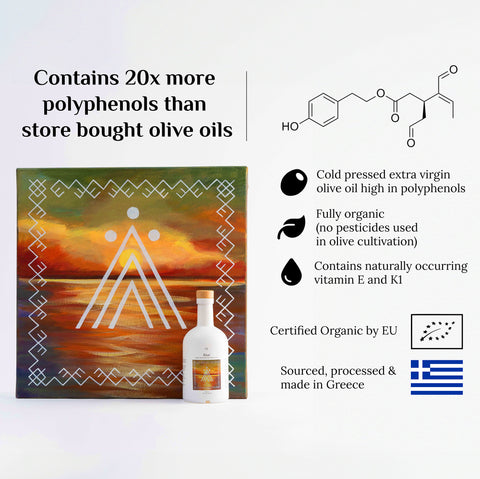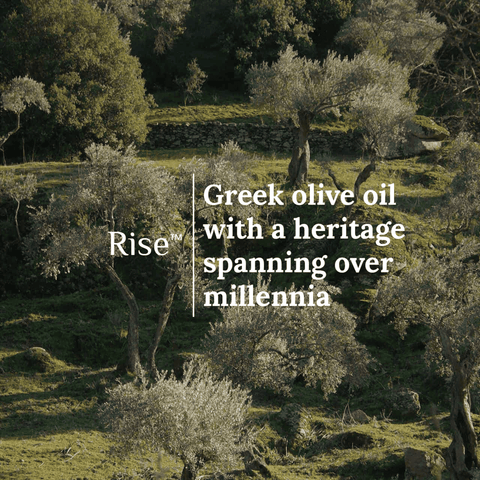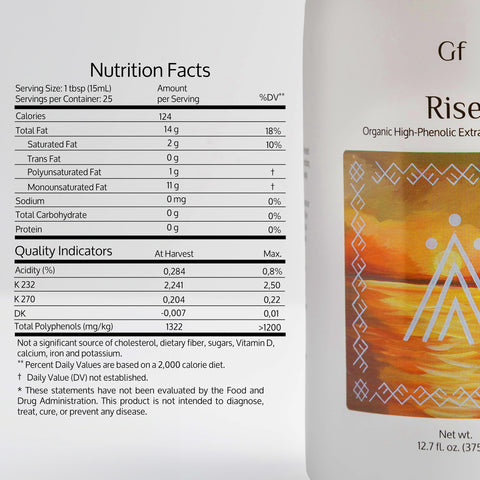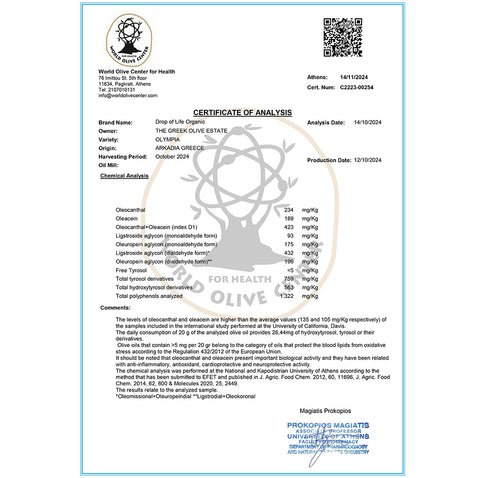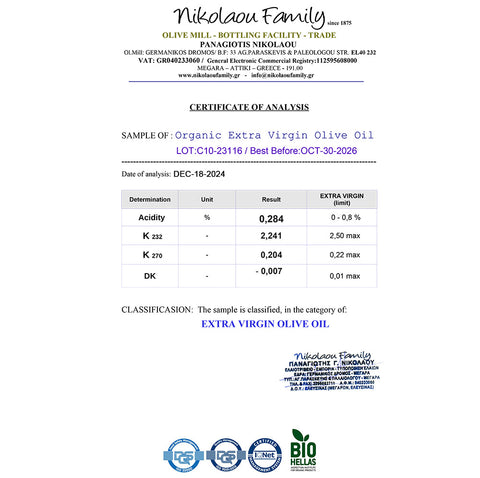When it comes to supporting gut health, olive oil is often an overlooked ally. Packed with monounsaturated fats, antioxidants, and polyphenols, olive oil contributes significantly to a healthy digestive system. In this article, we’ll explore how olive oil aids gut health and digestion, with scientific references to back up these claims.
1. Supports Healthy Gut Microbiota
Olive oil polyphenols, such as hydroxytyrosol, have been shown to positively influence gut microbiota by promoting the growth of beneficial bacteria. A recent study demonstrated that extra virgin olive oil (EVOO) consumption increased the abundance of probiotics, such as Lactobacillus and Bifidobacteria, in the gut. This balance supports digestion and overall immune health (source).
 2. Reduces Gut Inflammation
2. Reduces Gut Inflammation
Chronic inflammation in the gut is a precursor to numerous digestive disorders, including irritable bowel syndrome (IBS). Oleic acid, the primary fatty acid in olive oil, has anti-inflammatory properties. Research found that olive oil reduced inflammation markers in individuals with gut-related issues, offering relief and supporting gut lining integrity (source).
3. Enhances Nutrient Absorption
Healthy fats are crucial for absorbing fat-soluble vitamins such as A, D, E, and K. Olive oil, being rich in monounsaturated fats, optimizes the absorption of these nutrients during digestion. A study from Nutrients confirmed that diets including olive oil led to better absorption of essential vitamins, improving gut and overall health (source).
4. Improves Bowel Regularity
Olive oil acts as a natural lubricant for the intestines, helping to ease digestion and promote regular bowel movements. A clinical trial published in the International Journal of Community Based Nursing and Midwifery found that olive oil was effective in alleviating constipation, particularly in elderly patients and those undergoing dialysis (source).
 5. Protects Against Harmful Bacteria
5. Protects Against Harmful Bacteria
The antibacterial properties of olive oil polyphenols provide an added layer of protection for the gut. Hydroxytyrosol and tyrosol, two key compounds in EVOO, have been shown to inhibit the growth of harmful bacteria such as Helicobacter pylori, a common cause of stomach ulcers. A study published in Frontiers in
Pharmacology highlighted olive oil’s effectiveness in reducing bacterial activity (source).
6. Promotes Gut Lining Health
A compromised gut lining can lead to conditions such as leaky gut syndrome, where toxins pass into the bloodstream. Olive oil’s polyphenols have been shown to strengthen the gut barrier. Research in the British Journal of Nutrition indicated that olive oil reduced gut permeability, protecting against digestive disorders (source)
How to Incorporate Olive Oil for Better Gut Health
- Drizzle EVOO on Salads: Use extra virgin olive oil as a salad dressing to maximize its polyphenol content.
- Add to Cooked Vegetables: Incorporating olive oil into warm dishes helps enhance nutrient absorption.
- Take It Raw: A teaspoon of EVOO in the morning can act as a gentle digestive aid.
Final Thoughts
Olive oil is more than just a kitchen staple; it’s a powerful tool for improving and maintaining gut health. From fostering beneficial bacteria to reducing inflammation and enhancing nutrient absorption, its benefits are backed by science. Make the switch to high-quality extra virgin olive oil to harness its digestive benefits.




